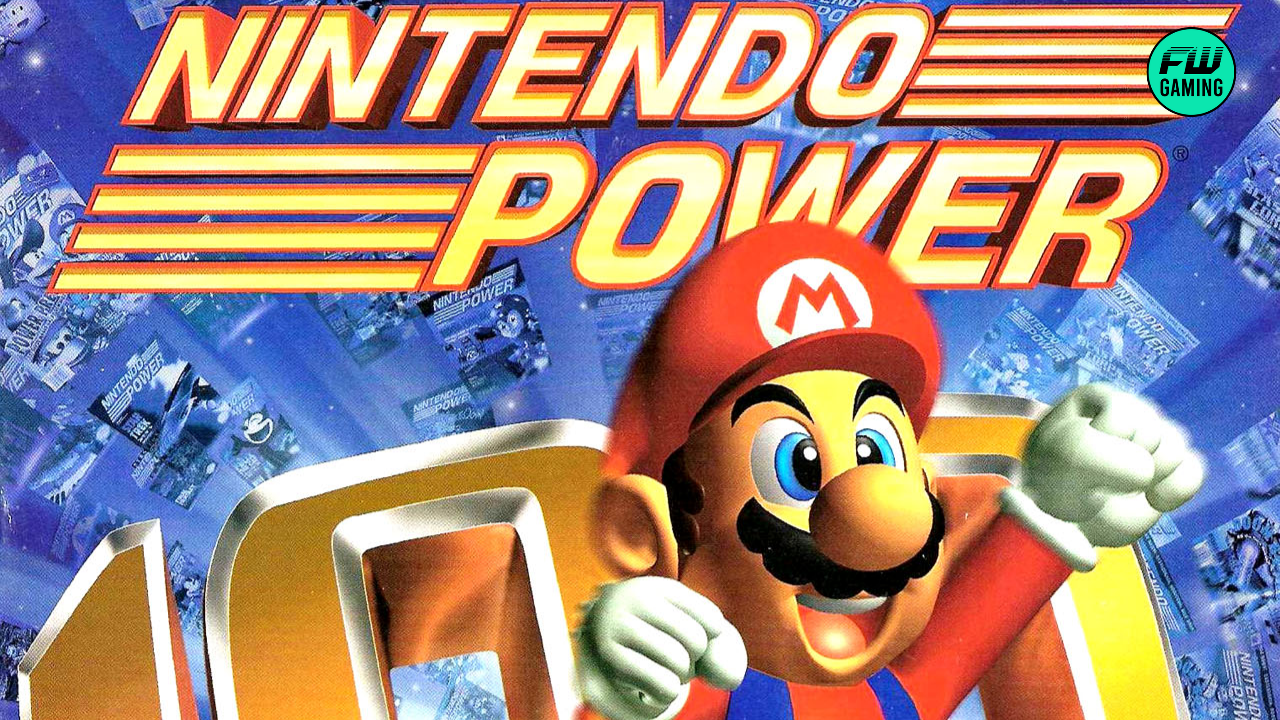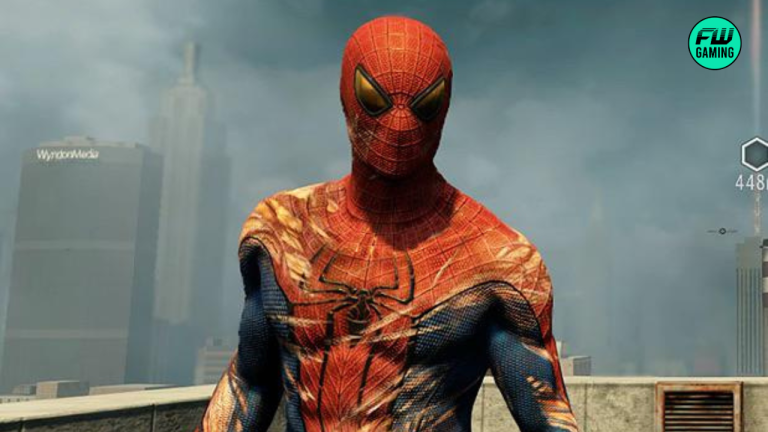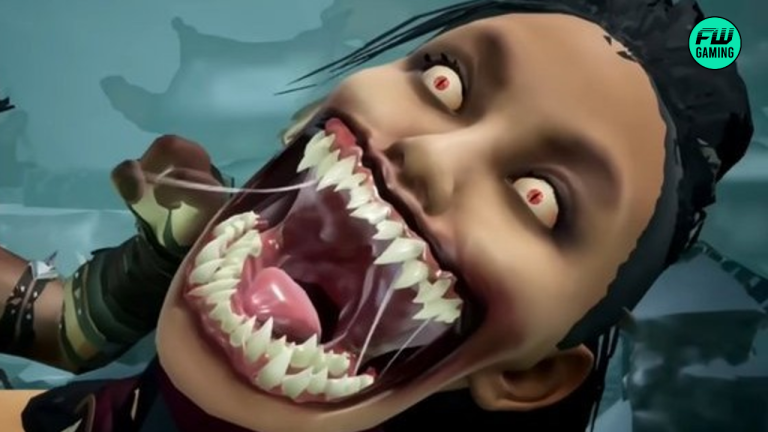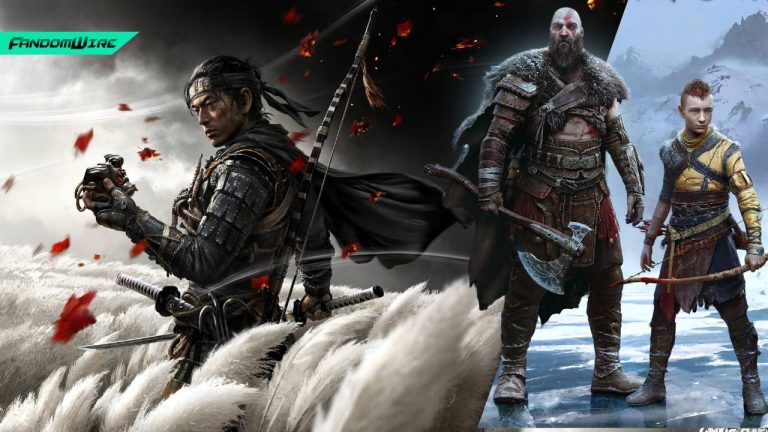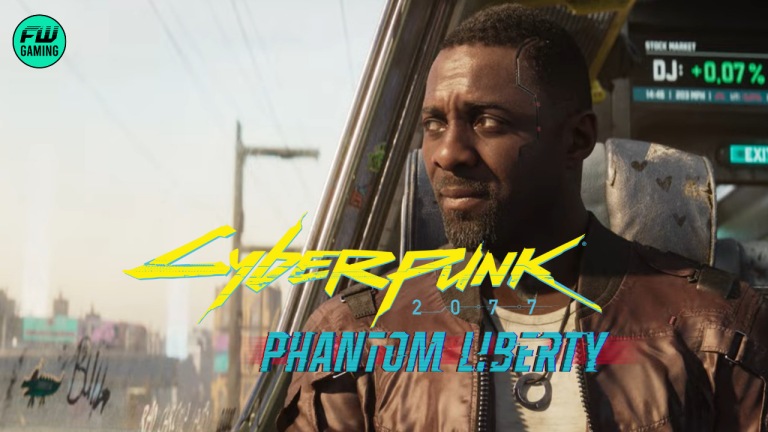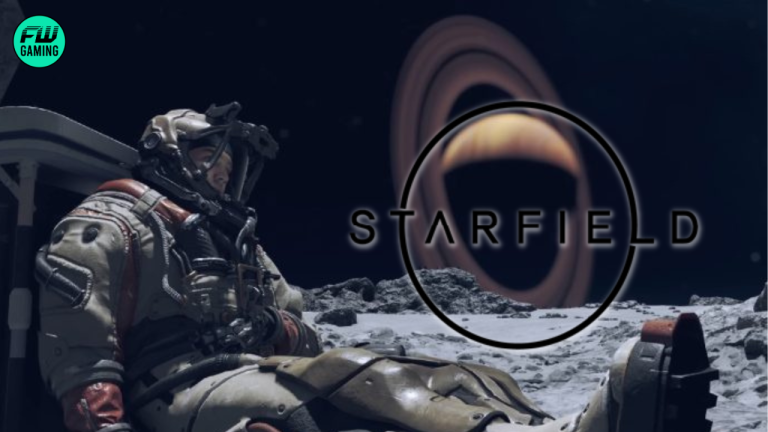Stephan Reese, Senior Producer at Bungie, has also been an organizer and showrunner at Interactive Art Collection, a non-profit organization. Interactive Art Collection was established back in 2021 and has been focused on the discovery, preservation, education, and sharing of historic materials and original art from the gaming industry. They have curated and maintained the largest known collection of original art and production materials from Nintendo Power Magazine. Their exhibition titled, Art of Nintendo Power houses almost 400 individual artifacts.
Their most recent exhibition was held at PAX West 2023, in Seattle for four days. Attendees could walk in and check out all the Nintendo Power exhibits, which were originally crafted and written for kids. Listed below are some of the best exhibits, with Reese explaining the pieces.
Kirby’s Adventure
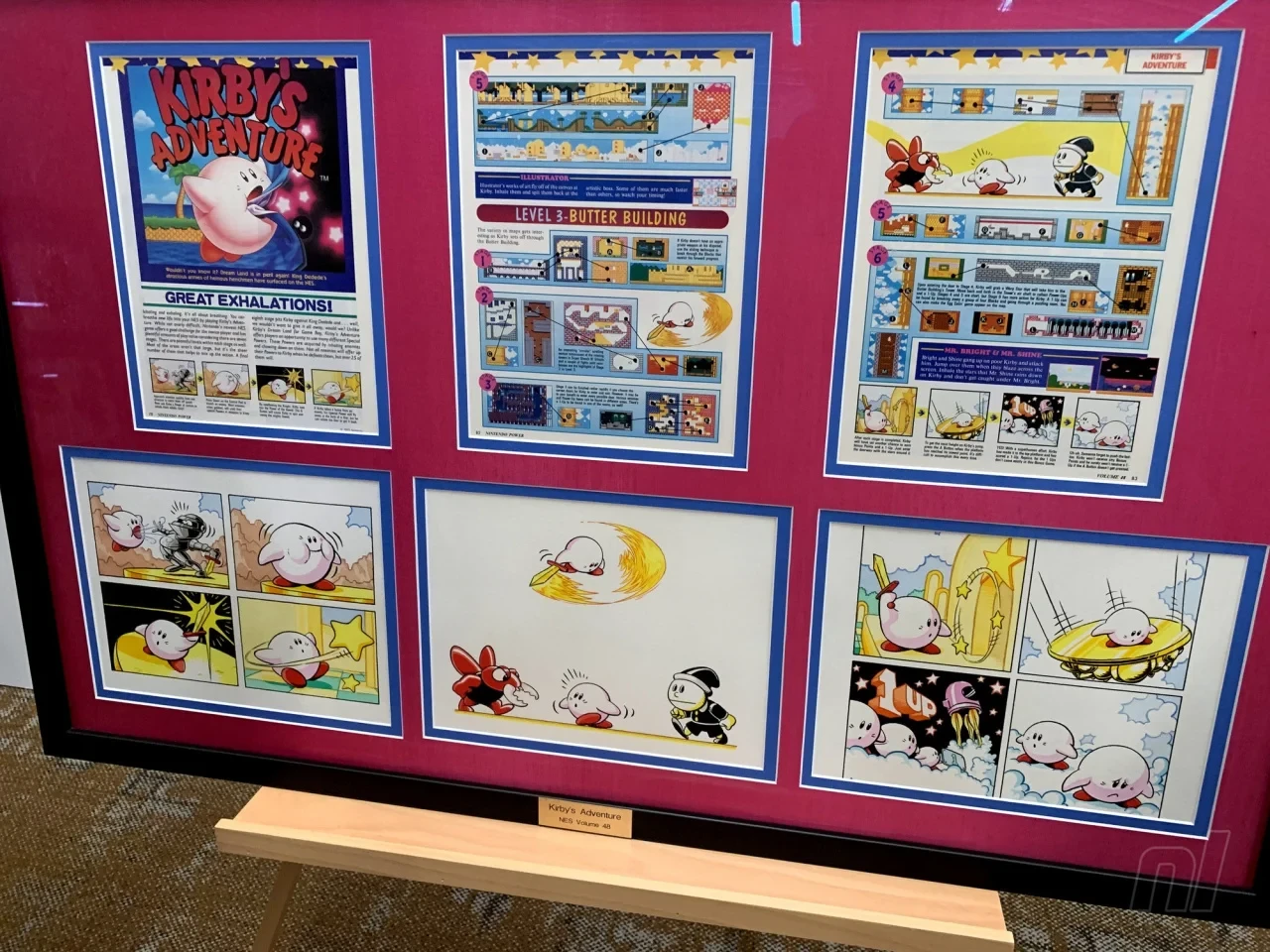
Reese details this piece by saying it was by Kevin Brockschmidt, a notable artist for his work Magic: The Gathering. Reese mentioned that a lot of artists who had worked for Nintendo Power also moonlighted as contract artists.
Reese pointed out that this was one of his favorite pieces of Kirby, and that Brockschmidt was an amazing artist whose work was featured in a lot of internal pages for first-party.
Also Read: Nintendo Announce Throwback Title Mario vs Donkey Kong at Nintendo Direct
Itchy and Scratchy
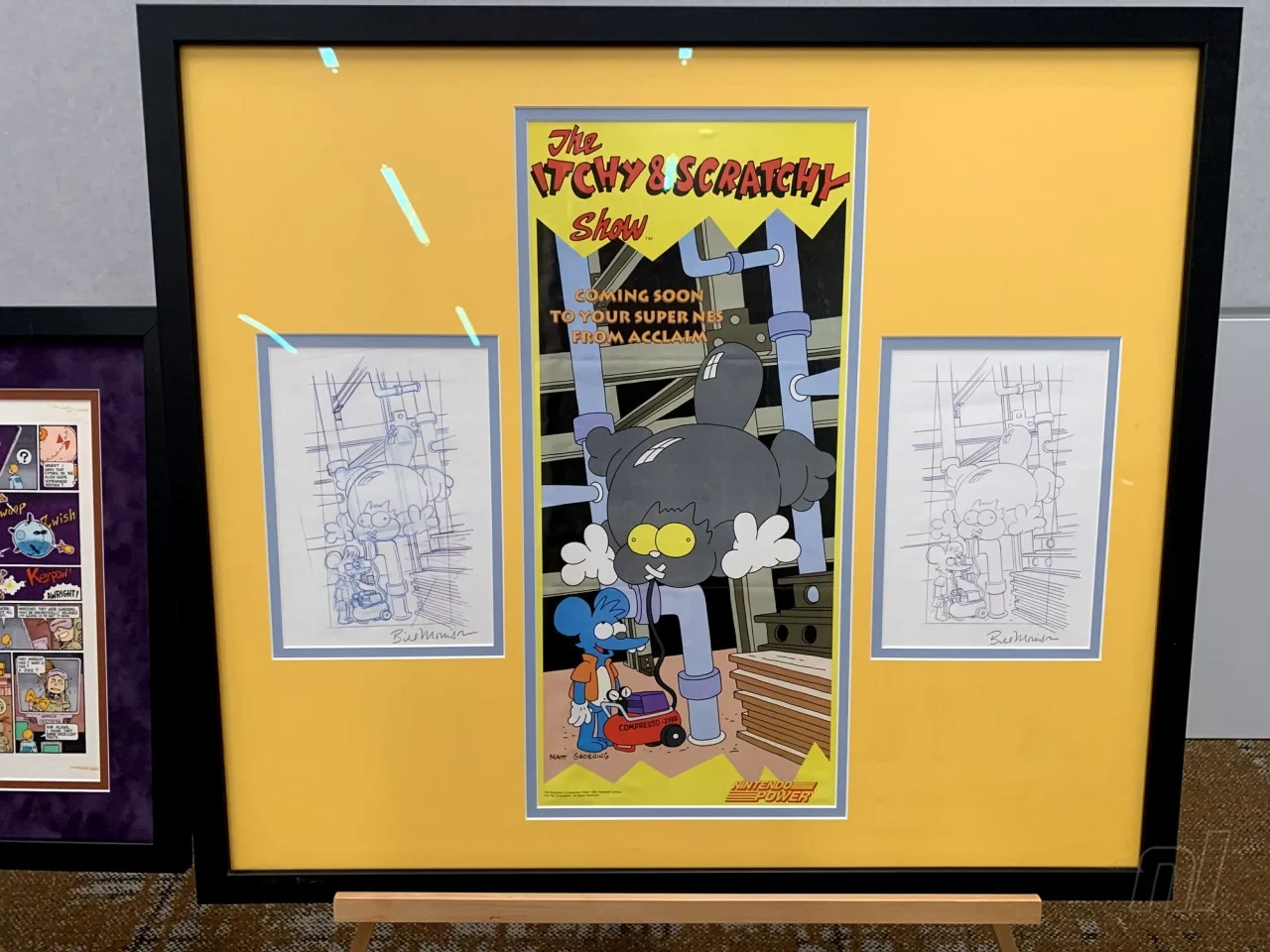
Reese mentioned this was Bill Morrison’s work even though it was signed by Matt Groening on the final product. This was common with most of the pieces related to the Simpsons, as Groening would usually add his name to anything that’s Simpsons-related. Reese also clarified that almost all of the pieces in the gallery were obtained directly from the artists or rarely through private collectors.
Super C
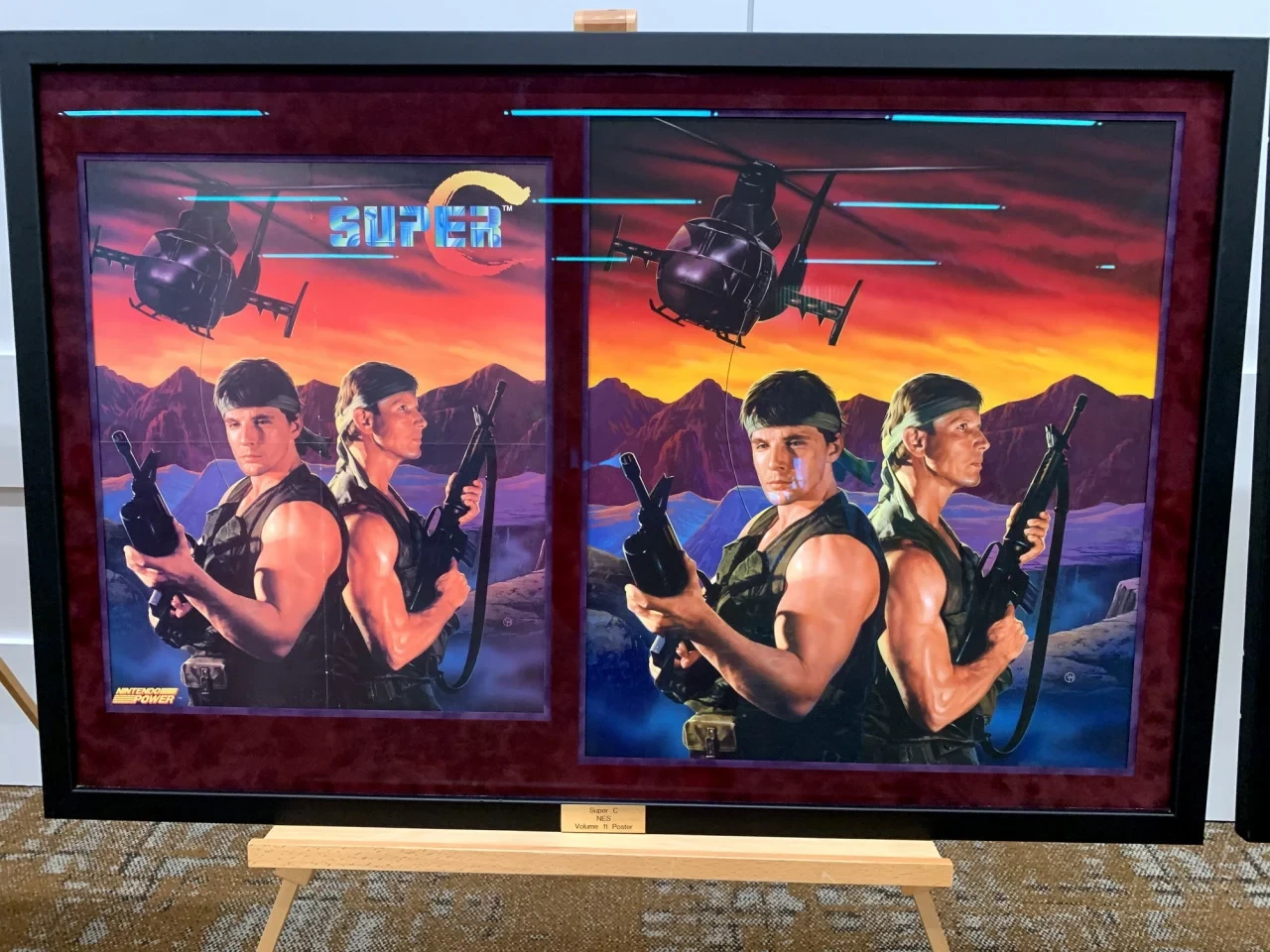
This was said to be a piece by Lee MacLeod, and Super C in particular was described as a paint-over of a photograph. MacLeod was said to have painted over a photograph of two men holding guns. MacLeod had then added in the rest of the mountains and the helicopter.
Star Fox
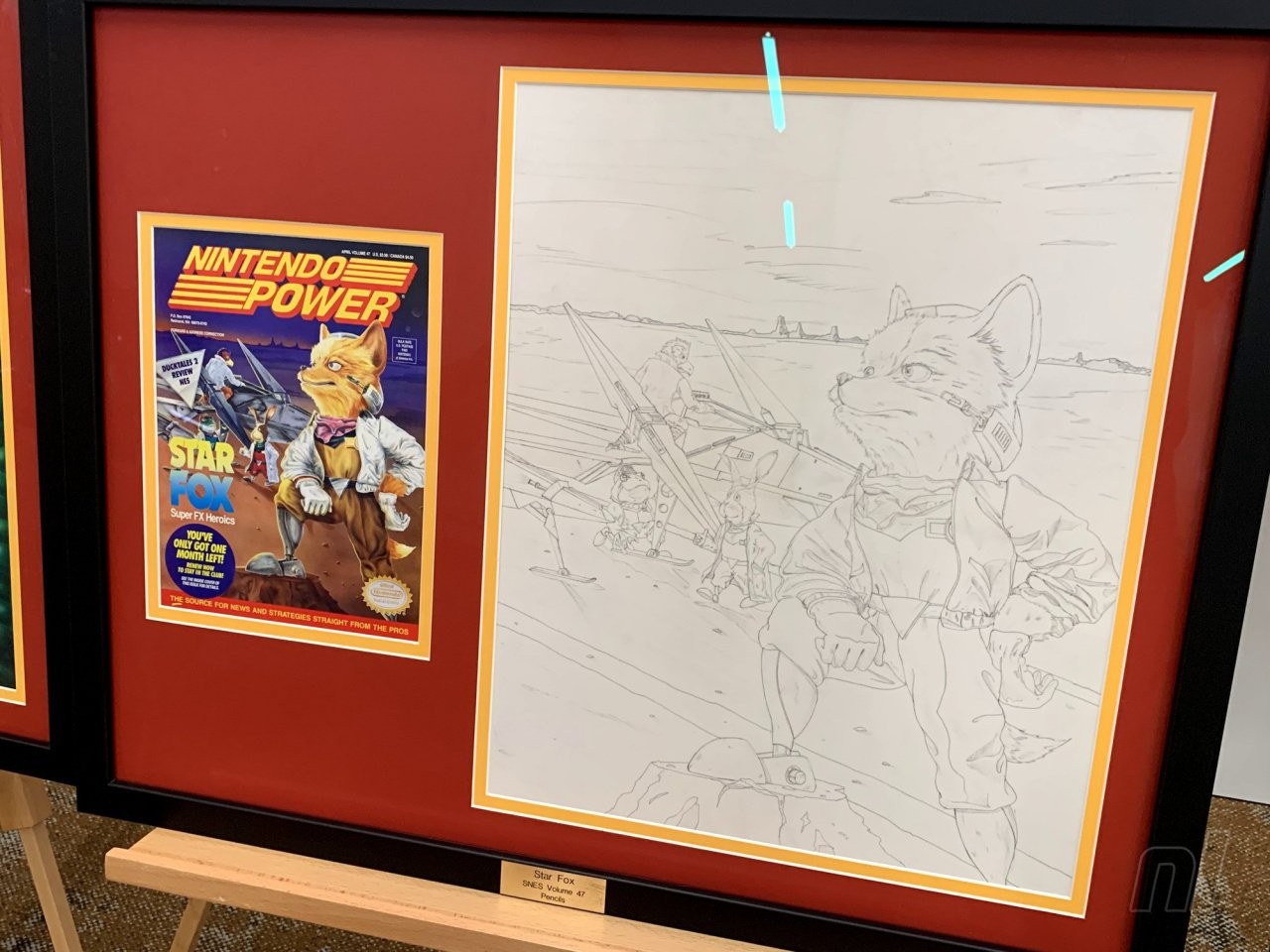
This was said to have been a piece by David Harto, a U.S. artist. These were said to be made out of pencil sketches and then used to make a stencil from a material called frisket tape. After which, the pieces were just painted by peeling off each tape individually and taping them back in place.
Super Mario Kart and Darkwing Duck
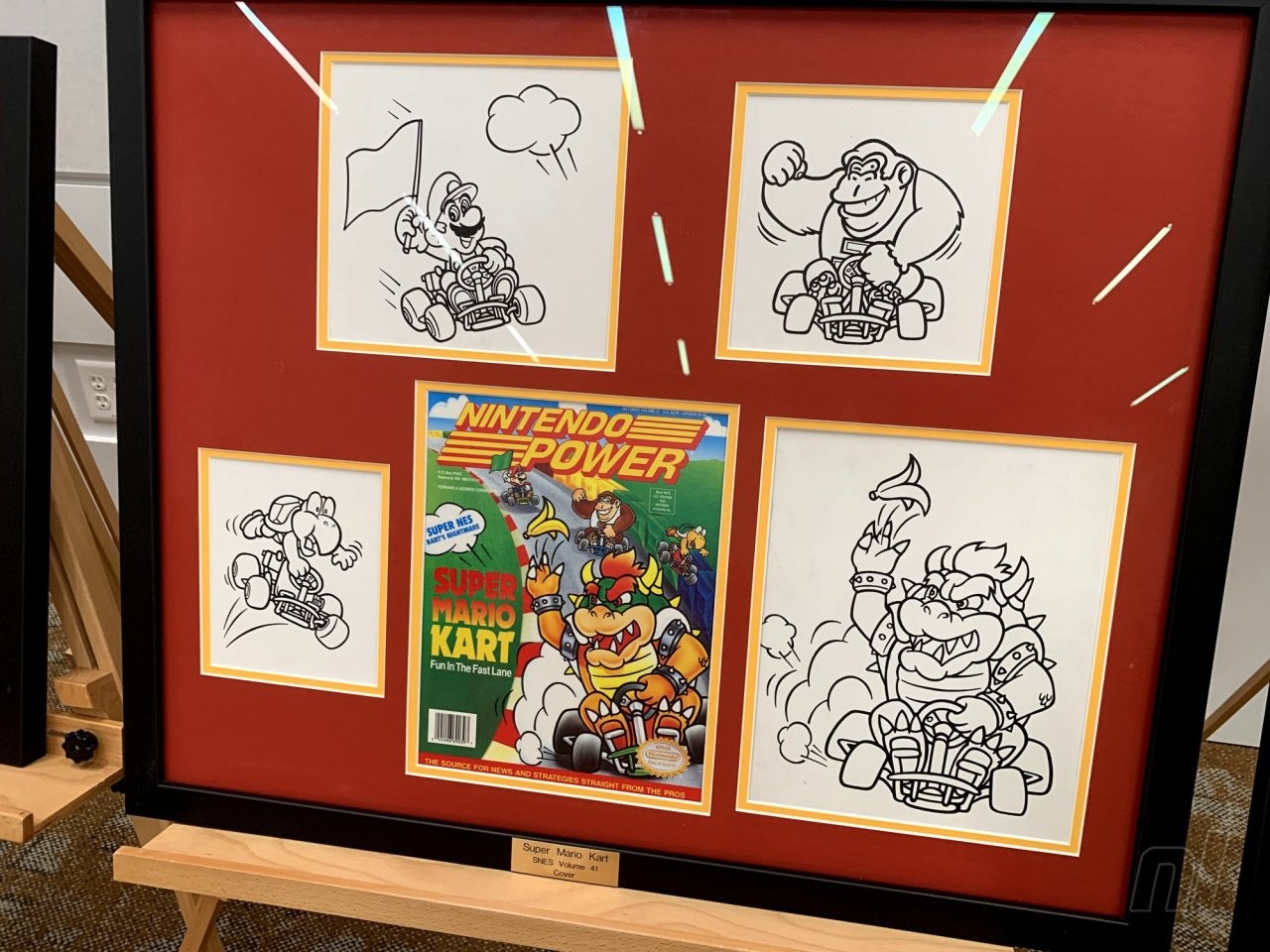
Another set of pieces attributed to David Harto, where Dave worked on the dark ink lines and printed them on a piece of acetate, finally airbrushing the colors underneath. The difference between the Mario Kart and the Darkwing pieces was said to be the lines printed on acetate for the Mario Kart piece and the lines printed on a piece of plastic for Darkwing.
Nintendo Power envelopes and letters
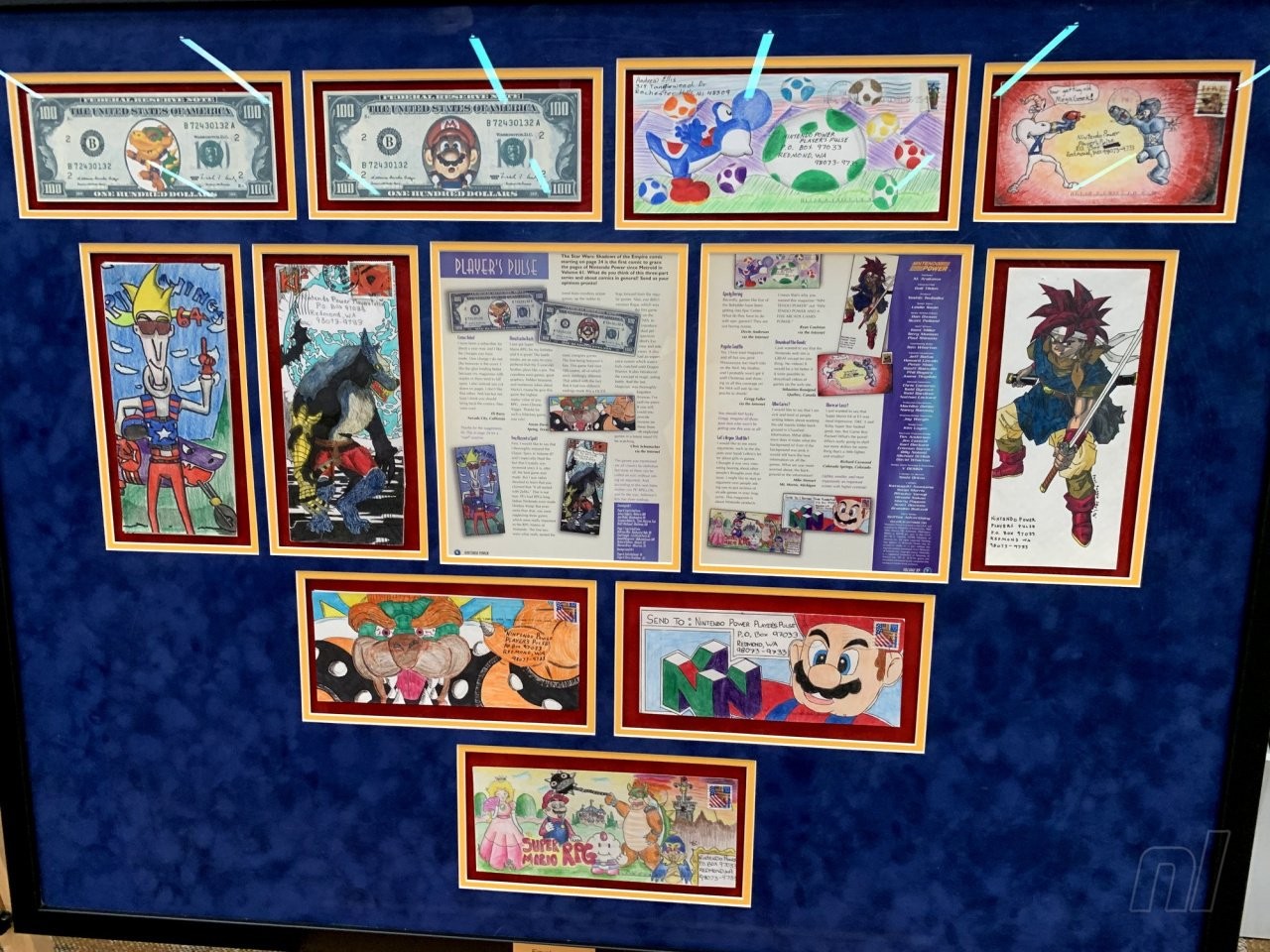
Reese mentioned that all these were children’s envelopes, drawn and mailed in by children. The collection was obtained from an ex-Nintendo employee who took them off the wall in a call center. They were in a Redmond building which was bulldozed back in 2010, before which this employee had grabbed as much art off the wall as possible, including around 125 envelopes, and had them handed them to Reese years later.
The Magical Quest Starring Mickey Mouse
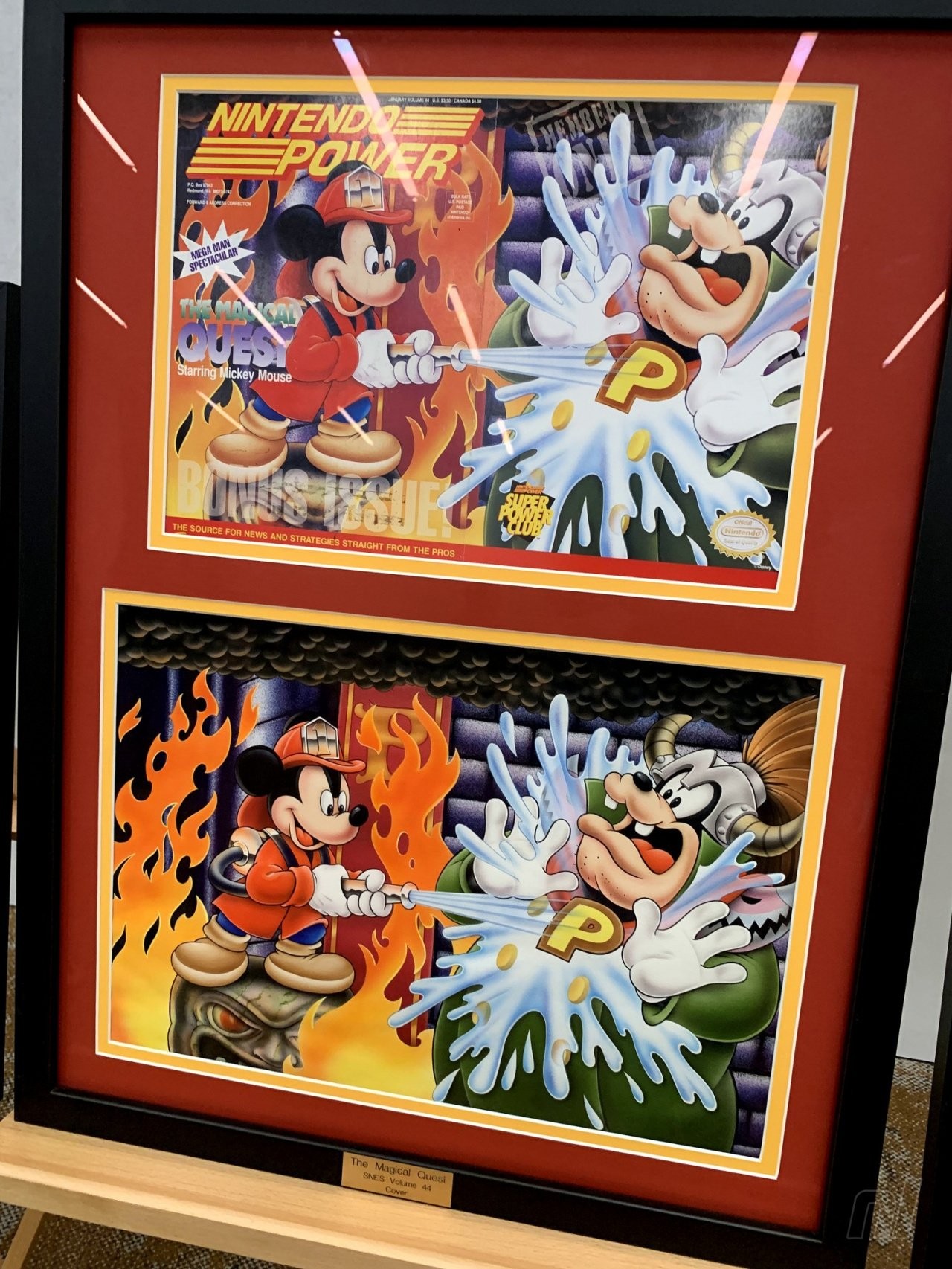
Attributed to Dan McGowan, who Reese called an incredible artist, Reese had obtained these pieces from his estate after his untimely passing a decade ago. The pieces displayed McGowan’s talent as they were painted very close to scale. Reese also revealed how the pieces were painted much larger than the covers, and the reason behind it was that made it easy to fix any mistakes.
Nintendo Power “Top” lists
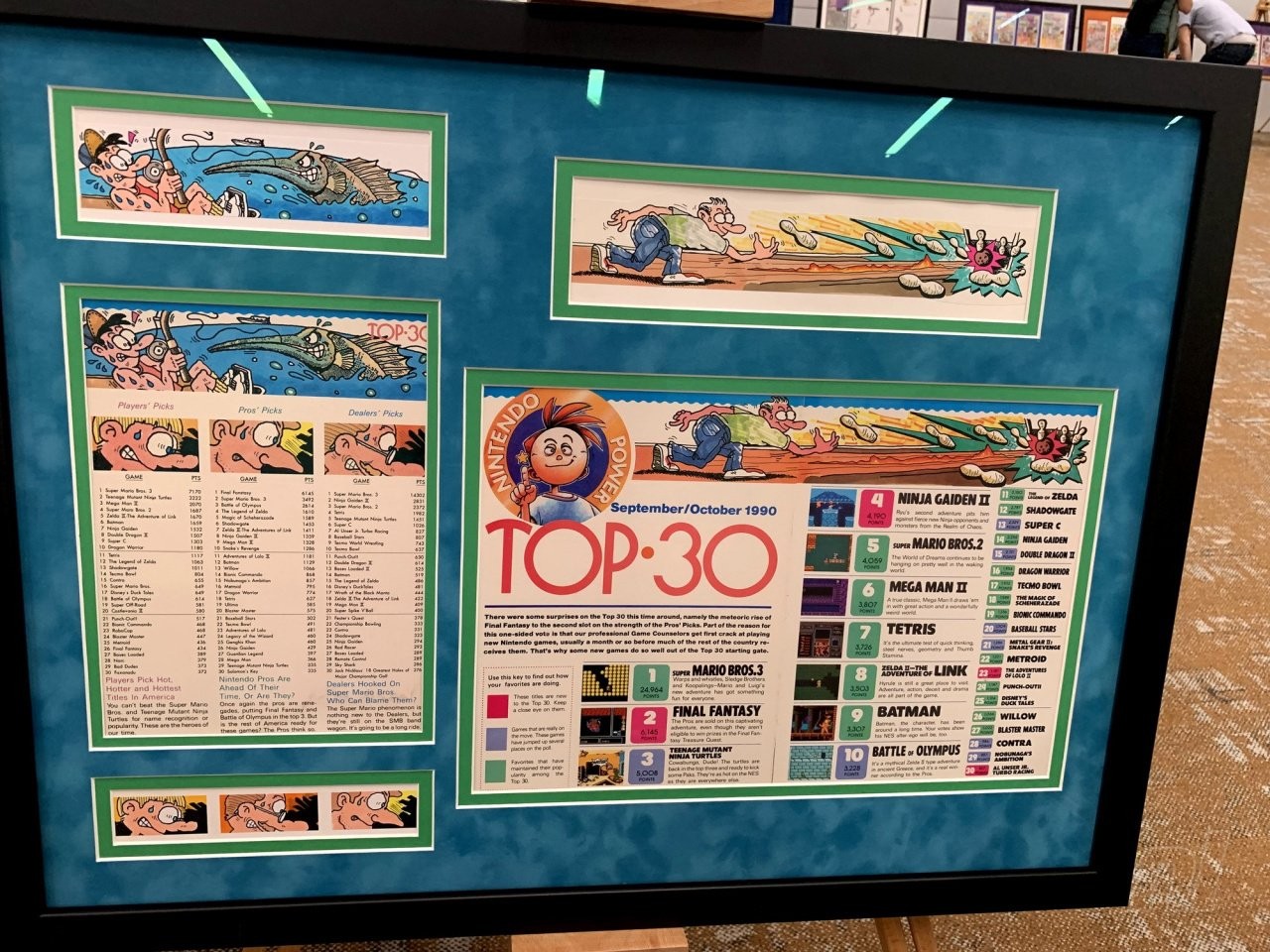
These pieces were some of the Japanese origin art being displayed, attributed to an artist named Orange Nakamura. Reese also clarified that the artist often painted under a pseudonym, so it’s not clear what the artist’s actual name could be, as “Orange” is definitely not their actual first name.
Howard and Nester
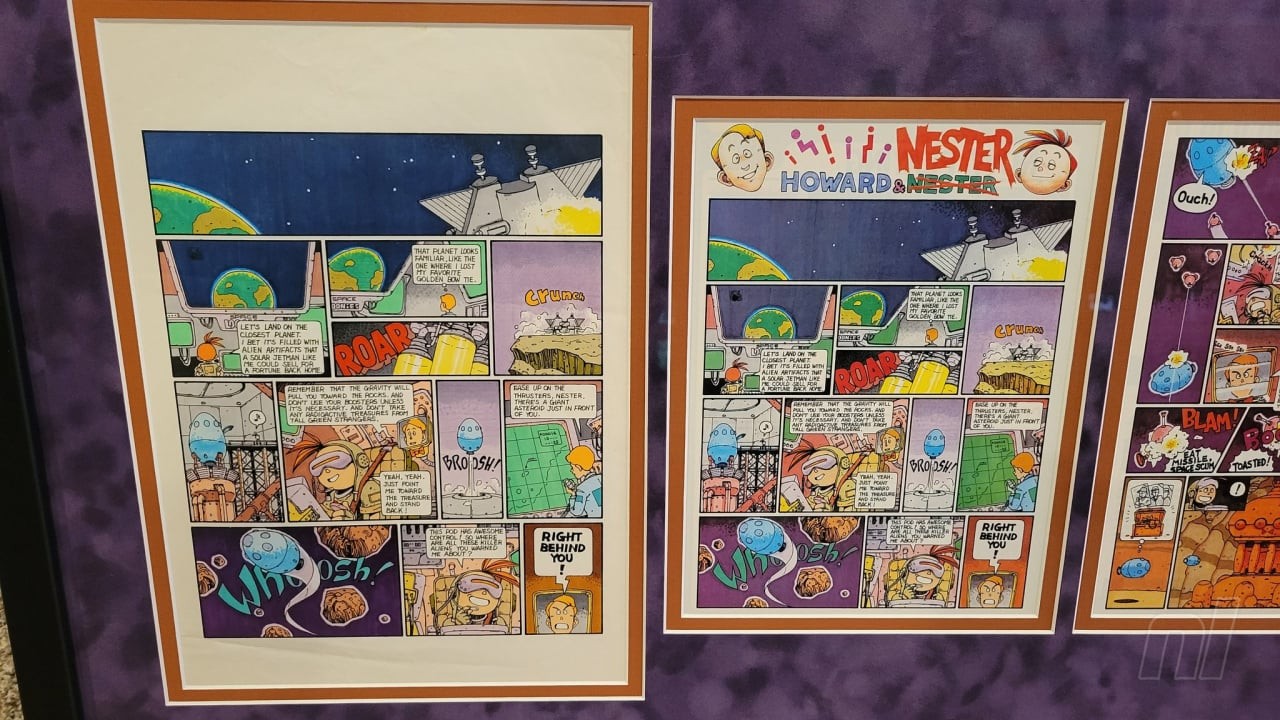
Attributed to Shuji Imai, a Japanese artist and the first Howard and Nester artist. Reese revealed that Imai did not speak English back then, but still lettered the English alphabet directly onto the pages. Lettering used to be done separately but Imai letter the page directly by literally drawing them instead of writing them which was quite interesting.
Super Mario Bros. 3 clay model
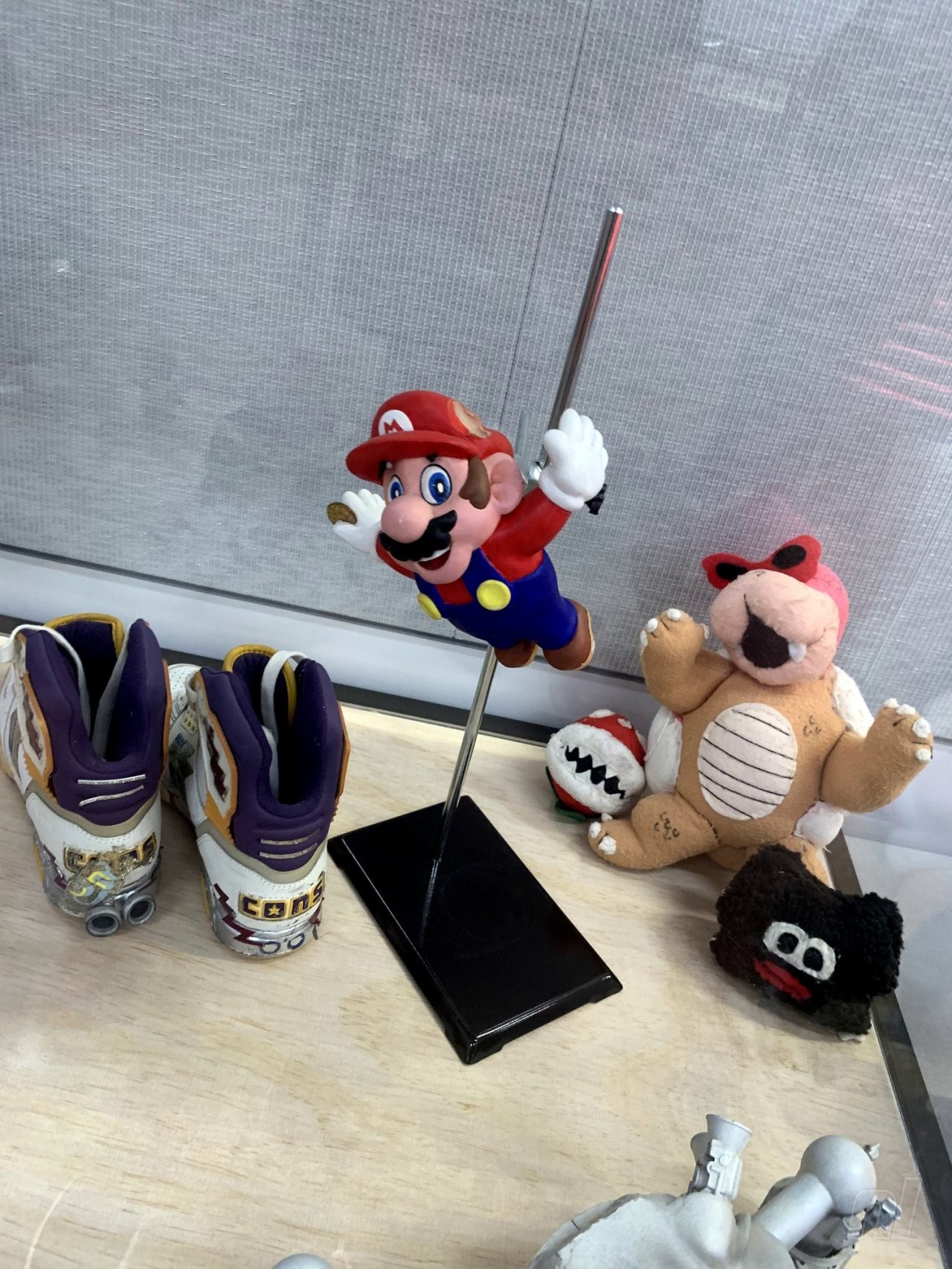
Reese spoke about how most pieces were made out of polymer clay, as back then, someone had to literally create a solid piece. For this reason, the first illustrations were made out of bakable clay which hardens later on and has survived and stayed in reasonably good shape.
Mario Mascot Costume
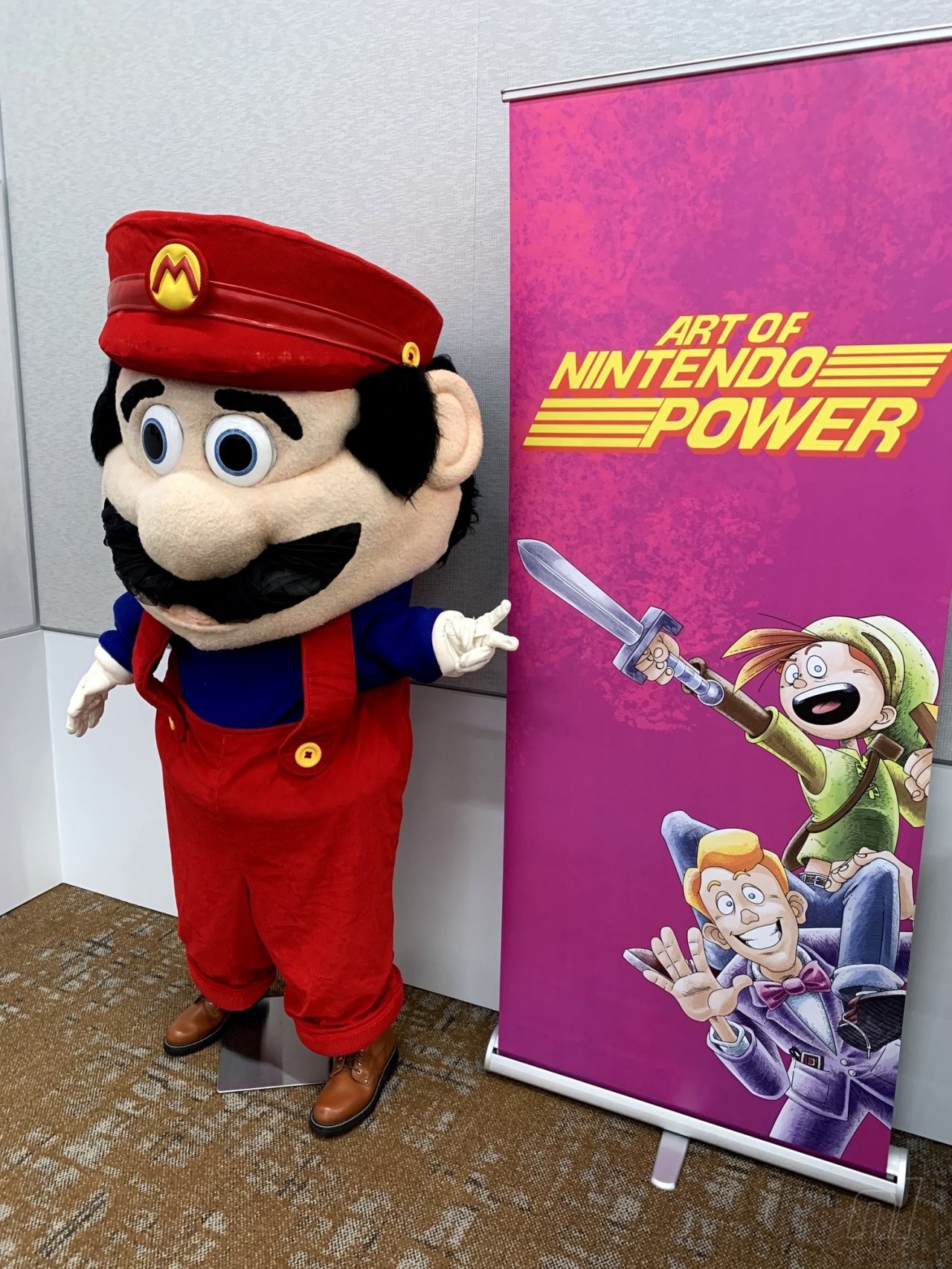
This was said to be built in 1989, and first used in 1990. Reese also displayed the photo of the actual mascot from the Nintendo World Championships in 1990. Reese also revealed that the way they make his exhibitions findable is through the use of good SEO as Nintendo Power Art is usually ranked quite high in Google searches.
What nostalgic memory do you have of the famous Nintendo characters? Let us know in the comments!
Source: NintendoLife
Follow us for more entertainment coverage on Facebook, Twitter, Instagram, and YouTube.

